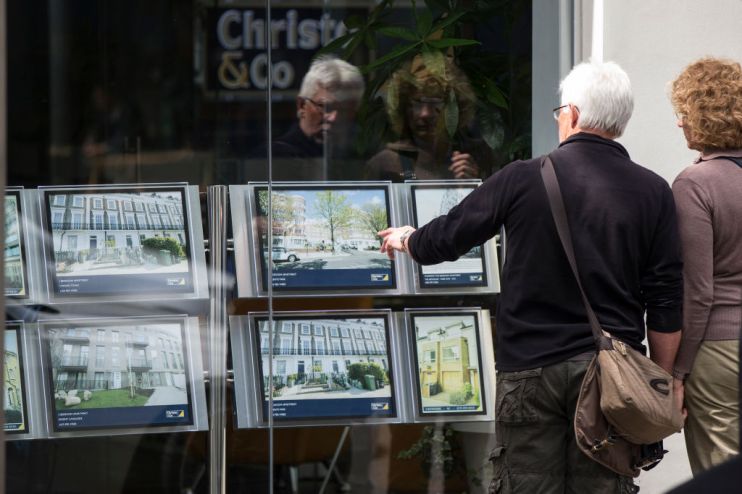UK house prices grew at fastest rate since 2015 in November

UK house prices grew at an annual rate of 6.5 per cent in November, the fastest rate since January 2015, as the sector batted off the second national lockdown.
According to Nationwide’s house price index, prices also increased on a month-on-month basis to be up 0.9 per cent compared to last November.
As a result, the average house price in the UK now stands at £229,721, up from £227,826 last month.
Nationwide said that despite the second lockdown, which has seen economic activity shrink in other sectors, the housing market has remained “robust” through November.
Property transactions hit 105,600 in the period, the highest since 2016, while mortgage approvals reached their highest levels since 2007.
Robert Gardner, Nationwide’s chief economist, said: “The outlook remains highly uncertain and will depend heavily on how the pandemic and the measures to contain it evolve as well as the efficacy of policy measures implemented to limit the damage to the wider economy.
“Behavioural shifts as a result of Covid-19 may provide support for housing market activity, while the stamp duty holiday will continue to provide a near term boost by bringing purchases forward.
“However, housing market activity is likely to slow in the coming quarters, perhaps sharply, if the labour market weakens as most analysts expect, especially once the stamp duty holiday expires at the end of March.”
Jeremy Leaf, north London estate agent and a former RICS residential chairman, says: ‘These figures feel like the storm before the calm as buyers and sellers rushed to take advantage of the stamp duty holiday before the March deadline, despite continuing Covid restrictions in October, the possibility of a no-deal Brexit and economic growth stalling.
Before the Open newsletter: Start your day with the City View podcast and key market data
‘That frenzy has been since replaced by a quieter, but just as determined mood to complete sales previously agreed. We don’t see any signs either of significant price adjustments, irrespective of whether there is an extension to the stamp duty holiday, with activity continuing to be supported by a shortage of listings and longer-term low interest rates.’
Housing market set to come under pressure
EY Item Club’s chief economist Howard Archer warned that the elevated levels of activity in the market were unlikely to last.
“The EY Item Club suspects that house prices could be around 5 per cent lower than now by mid-2021″, he said.
“The housing market is likely to come under mounting near-term pressure amid rising COVID-19 cases and lockdown restrictions, while there is likely to be a significant rise in unemployment even though the furlough scheme has been extended until March. Meanwhile, earnings have been limited and are likely to remain so.
“There is also likely to be a fading of the pent-up demand effect on housing market activity, while pandemic-related restrictions may also have some dampening impact on the housing market and consumer confidence.
“Indeed, consumer confidence declined further in November to be at a six-month low, which may increase the caution of many people in making major spending decisions.
Nationwide’s figures came after banker Halifax revaled that consumer confidence in the housing market had shrunk last month.
Just 14 per cent of people surveyed by Halifax said that they believed their home had become more valuable this month, compared with 17 per cent in September and October.
Despite the slip, the figure remains high above the four per cent recorded during the first national lockdown in May.